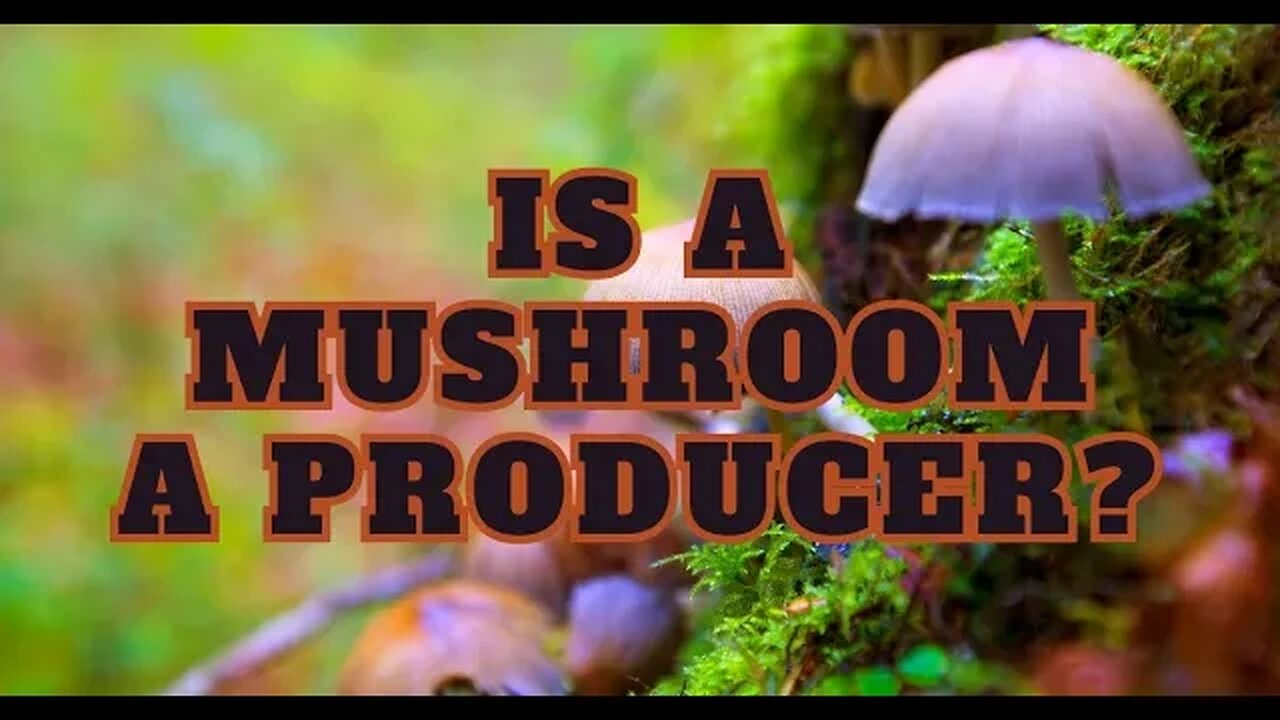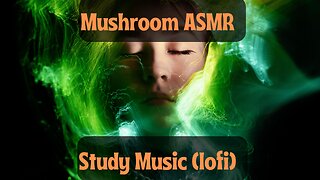Premium Only Content

Is a Mushroom a Producer?
https://www.mycophiliac.com/p/is-a-mushroom-a-producer
From the towering trees in the forest to the tiniest microbes in the soil, every organism has a unique and integral role in our planet's ecosystem. In this web of life, is a mushroom a producer? Let's embark on an exploration of the world of fungi and their unique ecological functions.
The Life Cycle of a Mushroom
To understand whether a mushroom is a producer or not, it is essential first to comprehend the life cycle of a mushroom. Often only visible during a brief part of their life cycle, mushrooms are the fruiting bodies of fungi that develop from a network of thread-like structures called mycelium. These mycelia extend throughout the soil, wood, or other organic material, absorbing nutrients and facilitating decomposition.
Mushrooms reproduce through spores, tiny particles that can travel great distances in the air, on water, or animals. These spores create new mycelial networks, perpetuating the fungal life cycle.
Interested in learning more about this fascinating life cycle? Visit here to delve into the captivating journey of a mushroom, from spore to fruiting body.
The Role of Mushrooms in the Ecosystem: Are Mushrooms Producers?
Producers, or autotrophs, are organisms that can produce their own food from inorganic substances using light or chemical energy. They serve as the food chain's base, providing consumers with energy and nutrients. So, is a mushroom a producer?
Contrary to this, mushrooms and other fungi are heterotrophs, not producers. They acquire nutrients by breaking down organic matter, a process known as decomposition. They secrete enzymes that break down complex organic compounds into simpler ones, which the fungi absorb for nourishment. This process also releases nutrients into the environment, enriching the soil and enabling other organisms to access these nutrients.
Dive deeper into the ecological role of mushrooms here, where you'll find a plethora of facts about these fascinating organisms.
Decomposers and Recyclers: Mushrooms as Detritivores
Since they are not producers, mushrooms instead fill an equally essential role as decomposers or detritivores. As decomposers, fungi are key players in nutrient cycling, breaking down organic matter and returning essential elements to the ecosystem.
Consider the process of a fallen tree decomposing in the forest. Fungi, including many types of mushrooms, play a critical role in breaking down the wood and returning its nutrients to the soil, facilitating the growth of new life. You can discover more about this natural recycling process here.
The Fascinating World of Mycorrhizal Fungi
While many fungi decompose dead organic matter, some form symbiotic relationships with living plants. These fungi, known as mycorrhizal fungi, colonize plant roots and aid in nutrient uptake. In return, they receive sugars and other compounds from the plant. This relationship is a prime example of mutualistic symbiosis, where both organisms benefit.
Is a mushroom a producer in this context? No, it still isn't, but the mutualistic relationship between the fungi and plant roots increases overall productivity in the ecosystem. Explore the world of mycorrhizal fungi here and learn about the intricate connection between plants and fungi.
Mushrooms: An Invaluable Part of Our Ecosystem
While mushrooms are not producers in the ecological sense, their role as decomposers and mutualists is vital for maintaining the health and productivity of ecosystems worldwide. By decomposing organic matter, they recycle nutrients and promote soil fertility. By partnering with plants, they boost plant growth and productivity.
-
 9:55
9:55
Mycophiliac
1 year ago $0.02 earnedMushroom Lofi ASMR Study Music
153 -
 LIVE
LIVE
The State of Freedom
2 hours ago#327 Digging Deeper into the Carbon Capture Scam w/ Brad LeBlanc
28 watching -
 38:39
38:39
VINCE
3 hours agoThis Is How The Media Spins The News | Episode 111 - 08/26/25
42.9K41 -
 LIVE
LIVE
Badlands Media
7 hours agoBadlands Daily: August 26, 2025
4,021 watching -
 LIVE
LIVE
GritsGG
2 hours agoWin Streaking! Coloring Hair at End of Stream! Most Wins 3435+ 🧠
159 watching -
 1:56:45
1:56:45
Dear America
3 hours agoNO MORE BURNING FLAGS!! 🇺🇸 Trump Signs Order Making It ILLEGAL!! + Trump Is SUING NEWSOM!
73.8K58 -
 LIVE
LIVE
JuicyJohns
2 hours ago $0.64 earned🟢#1 REBIRTH PLAYER 10.2+ KD🟢
106 watching -
 1:56:23
1:56:23
Law&Crime
2 hours ago $0.63 earnedLIVE: Adelson Matriarch Murder Trial — FL v. Donna Adelson — Day 3
10.7K -
 LIVE
LIVE
Major League Fishing
4 days agoLIVE! - Fishing Clash Team Series: Challenge Cup - Day 3
170 watching -
 LIVE
LIVE
Surviving The Survivor: #BestGuests in True Crime
2 hours agoCourt Stream: Donna Adelson Trial DAY 3 of Testimony
68 watching